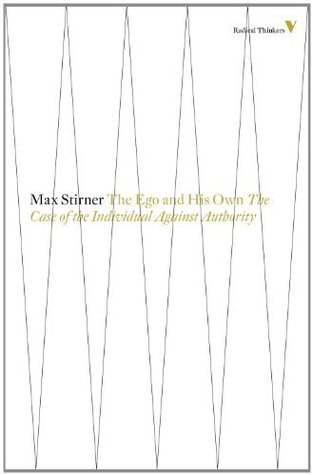More on this book
Kindle Notes & Highlights
by
Max Stirner
Read between
December 13, 2024 - January 4, 2025
What is not supposed to be my concern!2 First and foremost, the Good Cause,3 then God’s cause, the cause of mankind, of truth, of freedom, of humanity, of justice; further, the cause of my people, my prince, my fatherland; finally, even the cause of Mind, and a thousand other causes. Only my cause is never to be my concern. “Shame on the egoist who thinks only of himself!”
Let us look and see, then, how they manage their concerns—they for whose cause we are to labor, devote ourselves, and grow enthusiastic.
You have much profound information to give about God, and have for thousands of years “searched the depths of the Godhead,” and looked into its heart, so that you can doubtless tell us how God himself attends to “God’s cause,” which we are called to serve. And ...
This highlight has been truncated due to consecutive passage length restrictions.
No, mankind looks only at itself, mankind will promote the interests of mankind only, mankind is its own cause.
it causes nations and individuals to wear themselves out in its service, and, when they have accomplished what mankind needs, it throws them on the dung-heap of history in gratitude. Is not mankind’s cause—a purely egoistic cause?
Just observe the nation that is defended by devoted patriots. The patriots fall in bloody battle or in the fight with hunger and want;
The individuals have died “for the great cause of the nation,” and the nation sends some words of thanks after them and—has the profit of it.
I for my part take a lesson from them, and propose, instead of further unselfishly serving those great egoists, rather to be the egoist myself.
God and mankind have concerned themselves for nothing, for nothing but themselves. Let me then likewise concern myself for myself,
I am not nothing in the sense of emptiness, but I am the creative nothing, the nothing out of which I myself as creator create everything.
Away, then, with every concern that is not altogether my concern!
What’s good, what’s bad? Why, I myself am my concern, and I am neither good nor bad. N...
This highlight has been truncated due to consecutive passage length restrictions.
The divine is God’s concern; the human, man’s. My concern is neither the divine nor the human, no...
This highlight has been truncated due to consecutive passage length restrictions.
because each thing cares for itself and at the same time comes into constant collision with other things, the combat of self-assertion is unavoidable.
Victory or defeat—between the two alternatives the fate of the combat wavers. The victor becomes the lord, the vanquished one the subject: the former exercises supremacy and “rights of supremacy,” the latter fulfills in awe and deference the “duties of a subject.”
In childhood liberation takes the direction of trying to get to the bottom of things, to get at what is “back of” things; therefore we spy out the weak points of everybody, for which, it is well known, children have a sure instinct; therefore we like to smash things, like to rummage through hidden corners, pry after what is covered up or out of the way, and try what we can do with everything.
Through a considerable time we are spared a fight that is so exhausting later—the fight against reason. The fairest part of childhood passes without the necessity of coming to blows with reason. We care nothing at all about it, do not meddle with it, admit no reason. We are not to be persuaded to anything by conviction, and are deaf to good arguments and principles;
Mind is the name of the first self-discovery, the first undeification of the divine; that is, of the uncanny, the spooks, the “powers above.” Our fresh feeling of youth, this feeling of self, now defers to nothing; the world is discredited, for we are above it, we are mind. Now for the first time we see that hitherto we have not looked at the world intelligently at all, but only stared at it.
The man is distinguished from the youth by the fact that he takes the world as it is, instead of everywhere fancying it amiss and wanting to improve it, model it after his ideal; in him the view that one must deal with the world according to his interest, not according to his ideals, becomes confirmed.
How each of us developed himself, what he strove for, attained, or missed, what objects he formerly pursued and what plans and wishes his heart is now set on, what transformation his views have experienced, what perturbations his principles—in short, how he has to-day become what yesterday or years ago he was not—this he brings out again from his memory with more or less ease, and he feels with especial vividness what changes have taken place in himself when he has before his eyes the unrolling of another’s life.
The very thing on which the ancients set the highest value is spurned by Christians as the valueless,
Therefore man must first become so completely unconcerned and reckless, so altogether without relations, as the Skeptical culture presents him—so altogether indifferent to the world that even its falling in ruins would not move him—
before he could feel himself as worldless; that is, as spirit. And this is the result of the gigantic work of the ancients: that man knows himself as a being without relations and without a world, as spirit.
after all worldly care has left him, is he all in all to himself, is he only for himself, is he spirit for the spirit, or, in plainer lan...
This highlight has been truncated due to consecutive passage length restrictions.


